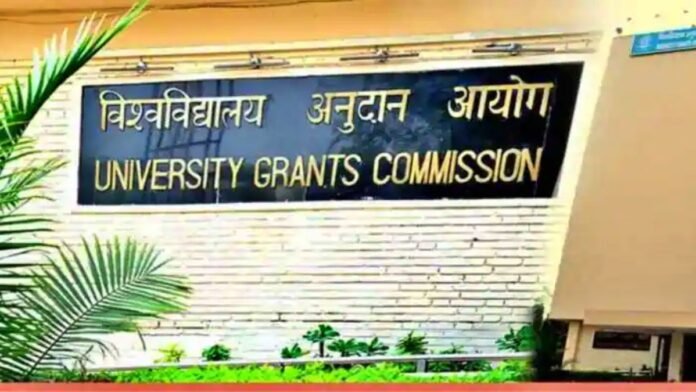
New Delhi: The University Grants Commission (UGC), the apex body for higher education in India, has directed all the universities and higher education institutions (HEIs) in the country to publicize the new criminal laws and dispel the “misconceptions” associated with them.
The new criminal laws, namely the Indian Evidence Code, 2023, the Indian Civil Defense Code Bill, 2023, and the Indian Judicial Code Bill, 2023, were passed by both the Lok Sabha and the Rajya Sabha during the winter session of Parliament. They received the assent of President Draupadi Murmu and became effective from January 1, 2024. They will replace the colonial-era laws of the Indian Evidence Act, of 1872, the Code of Criminal Procedure, of 1973, and the Indian Penal Code (IPC), of 1860 respectively.
The UGC, in its communication to the universities and HEIs, has stated that the new criminal laws are aimed at simplifying the legal process, ensuring speedy justice, protecting the rights of the accused and the victims, and enhancing the accountability of the police and the judiciary. The UGC has also attached a detailed letter that lists out the common “misunderstandings” and the corresponding “truths” about the new laws.
Some of the “misunderstandings” cited by the UGC are:
- The new laws are a “threat” to individual liberty and are designed to establish a “police state”.
- The new laws retain the sedition provisions and can be used to suppress dissent and criticism.
- The new laws could lead to “police torture” and “custodial violence” of the suspects and the witnesses.
- The new laws are biased against the marginalized sections of society and favor the powerful and the influential.
The UGC has refuted these claims and has provided factual information and the legal provisions that counter them. For instance, the UGC has clarified that:
- The new laws have several safeguards to protect individual liberty and the human rights of citizens, such as the right to information, the right to legal aid, the right to bail, the right to privacy, and the right to compensation.
- The new laws have narrowed down the scope of sedition and have made it applicable only to those acts that incite violence or public disorder against the state. The new laws have also decriminalized defamation and criminal intimidation, and have introduced the concept of hate speech and cybercrime.
- The new laws have strictly prohibited any form of torture or ill-treatment of the suspects and the witnesses, and have prescribed stringent punishment for the offenders. The new laws have also mandated the recording of the statements and the confessions of the accused and the witnesses, and have given them the right to retract or revise them.
- The new laws have ensured the equality and the dignity of all the citizens before the law, and have provided special protection and assistance to the vulnerable groups, such as women, children, minorities, dalits, tribals, and persons with disabilities.
The UGC has asked the universities and HEIs to publicize the new criminal laws and the topics covered in the detailed letter, and to conduct awareness campaigns through various means, such as publicity material, pamphlets, seminars, and talks. The UGC has also requested the universities and HEIs to invite lawyers, judges, serving and retired police officers, and relevant faculty members of the institutions to participate in these events and to share their views and experiences. The UGC has further asked the universities and HEIs to submit the details of the activities undertaken by them to the Ministry of Education, which will be forwarded to the Ministry of Home Affairs.

UGC Secretary Manish Joshi said, “The new criminal laws are a landmark reform in the Indian legal system, and they will bring about a positive change in the administration of justice and the maintenance of law and order in the country. The UGC, as the regulator of higher education, has a responsibility to educate and enlighten the students, the teachers, and the society at large about the salient features and the benefits of the new laws, and to clear the doubts and the apprehensions that may arise in their minds. The UGC hopes that the universities and HEIs will cooperate in this endeavour and will contribute to the dissemination of the legal knowledge and the promotion of the legal awareness among the masses.”

















































